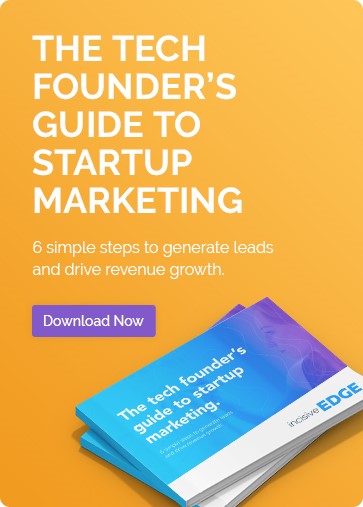It might seem counterintuitive, but overt self-promotion isn’t what content marketing is all about.
When developing a b2b content marketing strategy – say, putting a list of blog titles together, or ideas for social media posts – your job is not to try and figure out how you can weave a barely-concealed sales pitch into each and every piece of content you publish.
Indeed, taking the view that your products and/or services should be the centre of your content marketing strategy can often lead to alienating your target audience, essentially pushing them away instead of pulling them in.
Nonetheless, many business owners and even B2B marketers still insist upon creating content that is not engaging but gives the feel of a pushy salespeople. And it’s understandable why this happens – since the ultimate goal of content marketing is to drive an audience into the top of the funnel and ultimately to take a profitable action, then surely the content needs to be promotional, right?
Of course there is a need to be a promotional side to the content but it is not the core of the content.
Of course, a business or brand’s online following will be made up of people who are interested in the goods or services being sold. And, what’s more, these consumers often like to keep an eye on their favourite brands so they can take advantage of any promotions that are offered.
However, according to research from Sprout Social, too much promotion quickly puts people off – especially on social media.
Sprout Social found that 73.4% of the consumers they surveyed last year citing that they begin following a brand on social due to their interests in that brand’s products or services – and 58.8% of them will follow a brand because they are interested in promotions.
 (Image source: bizreport.com)
(Image source: bizreport.com)
However, despite these findings, when asked “What makes you unfollow a brand on social media?”, the top answer given by 46% of consumers was that they would unfollow a brand that posts too many promotional messages. In the words of Sprout Social, there is “a fine line between being informational and annoying”.
 (Image source: bizreport.com)
(Image source: bizreport.com)
Content Marketing Is Not Advertising
Traditional advertising essentially boils down to a brand telling people what to buy – which is why a lot people really hate advertising, especially when they’re online. Indeed, a report from PageFair published earlier this year found that ad blocker usage surged 30% in 2016, meaning that there were 615 million devices blocking ads worldwide by the end of the year.
 (Image source: uk.businessinsider.com)
(Image source: uk.businessinsider.com)
Consumers, it seems, are averse to blatant, promotional ads interfering with their online activities – to the extent that hundreds of millions are seeking out tools to avoid them.
And this is where content marketing is – or should be – the remedy.
Content is the core pillar of inbound marketing, which, unlike outbound marketing (which includes traditional advertising as well as other intrusive techniques (cold calls, email blasts, etc.), is all about allowing and enabling consumers to come you, rather than going out and pestering them.
The idea is that you create interesting, relevant and engaging content that’s designed not to overtly slap consumers around the face with a sales pitch, but to inform, educate, entertain and delight them.
Content Blindness
there is the concept of heard of “banner blindness” – that is, today, we’re exposed to so many banner advertisements online that we simply don’t “see” them anymore. As Bob Hoffman, aka “The Ad Contrarian”, pointed out in a keynote speech at Rethink TV in Sydney last month, display ads get just six clicks for every 10,000 ads served. “You are more likely to complete Navy SEAL training than click on a banner ad,” Hoffman said (and he’s probably right).
Content marketing is supposed to be the solution. However, when businesses bombard their audiences with nothing but promotion-heavy content, they’re contributing to the content version of banner blindness – “content blindness”.
Good content marketing is all about building trust, credibility and consumer loyalty through the distribution of educational content that’s truly valuable to a clearly defined target audience. In other words, it’s about telling great stories first, and selling great products second.
The sales come not from promotional-heavy hard sells – which tend to put off consumers – but from adding value to the brand by giving away free, useful information that instils a sense of trust in consumers that the brand knows its stuff and understands its customers’ wants, needs, and pain points.
Teach, Don't Sell
The point of content marketing is to build an audience that consumes and shares that relevant content. And the fact of the matter is, if your content provides no other insights other than how great your product or service is, nobody is going to want to read or share it.
On the other hand, if you’re producing valuable content that teaches users a useful skill, or gives them some good advice, or delivers some interesting industry insights – that’s the sort of stuff that web users crave.
Do you know that 86% of consumers suffer from banner blindness because they have learnt to subconsciously ignore anything that looks like an advertisement. When it comes to your content marketing, as soon as you start lapsing into a sales pitch, alarm bells start ringing in your readers’ minds, and they’ll remember that they hate advertising, and that they shouldn’t trust you at all.
Over to You
Content should educate or add some sort of value, not sell.
It should persuade an audience that you’re a brand worthy of their attention because you’ve always got something useful to say, not just something to sell. A good content marketing strategy will put your audience’s interests first, will turn your website into a trusted resource of information, and will never come across as nothing more than a bad sales pitch.
If you need help developing a robust content marketing strategy that will draw a targeted, engaged and organic audience naturally towards your business, get in touch with the inbound experts at Incisive Edge today.








